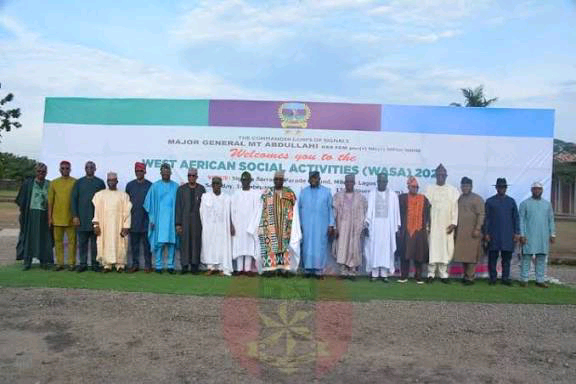SERAP Pressures Tinubu to Stop Proposed Salary Increase for Politicians
The Socio-Economic Rights and Accountability Project (SERAP) has asked President Bola Ahmed Tinubu to immediately halt the Revenue Mobilisation Allocation and Fiscal Commission’s (RMAFC) plan to raise salaries for political and public office holders, describing the proposal as “unlawful, unconstitutional, and insensitive.”
In a letter dated August 23, 2025, and signed by Deputy Director Kolawole Oluwadare, SERAP urged the President to take decisive steps to prevent the implementation of the review and to instruct top officials—including the Vice President, governors, their deputies, and lawmakers across the federation—to reject any such pay rise.
The organisation stressed that the decision, if carried out, would be unjustifiable in light of the country’s worsening economic challenges.
SERAP further warned that it would not hesitate to institute legal proceedings should the government fail to act within seven days. The group recalled a judgment delivered on June 4, 2021, by Justice Chuka Austine Obiozor of the Federal High Court, which ordered RMAFC to reduce the salaries and allowances of National Assembly members in line with the nation’s economic conditions. SERAP said ignoring that ruling while pushing for higher wages for top officials would amount to contempt of court and a disregard for the rule of law.
According to SERAP, the proposed increase reflects misplaced priorities, especially as more than 133 million Nigerians are living in multidimensional poverty, and several state governments are struggling to pay salaries and pensions.
“The constitutional mandate of RMAFC does not grant it the power to arbitrarily adjust salaries for politicians at the expense of ordinary citizens. Leadership must be about sacrifice, not personal enrichment,” the group stated.
The RMAFC, however, has defended its position. Chairman Mohammed Bello Shehu recently argued that the remuneration of political office holders has not been reviewed since 2008 and that the current pay structure no longer reflects “today’s socio-economic realities.”
He noted, for example, that the President’s official monthly salary is around ₦1.5 million—an amount he described as disproportionate when compared to the earnings of some chief executives of federal agencies.
The development has sparked mixed reactions across the country. Civil society organisations and opposition parties have widely condemned the idea, saying it portrays a lack of sensitivity to the plight of Nigerians facing high inflation, unemployment, and declining living standards.
Labour unions have also voiced concerns, insisting that government attention should be directed towards raising the minimum wage and addressing the rising cost of living rather than increasing the pay of politicians.
SERAP insists that the Tinubu administration must demonstrate leadership by cutting the cost of governance instead of compounding it.
“The resources that would go into funding higher salaries for politicians could be better channelled into education, healthcare, and infrastructure. The people must not be made to suffer more for the comfort of a few,” the organisation said.
With SERAP’s seven-day ultimatum now in place, attention is shifting to the Presidency’s response. Failure to act could set the stage for a major legal confrontation over the constitutional powers of RMAFC and the government’s broader commitment to accountability, transparency, and fiscal discipline.







